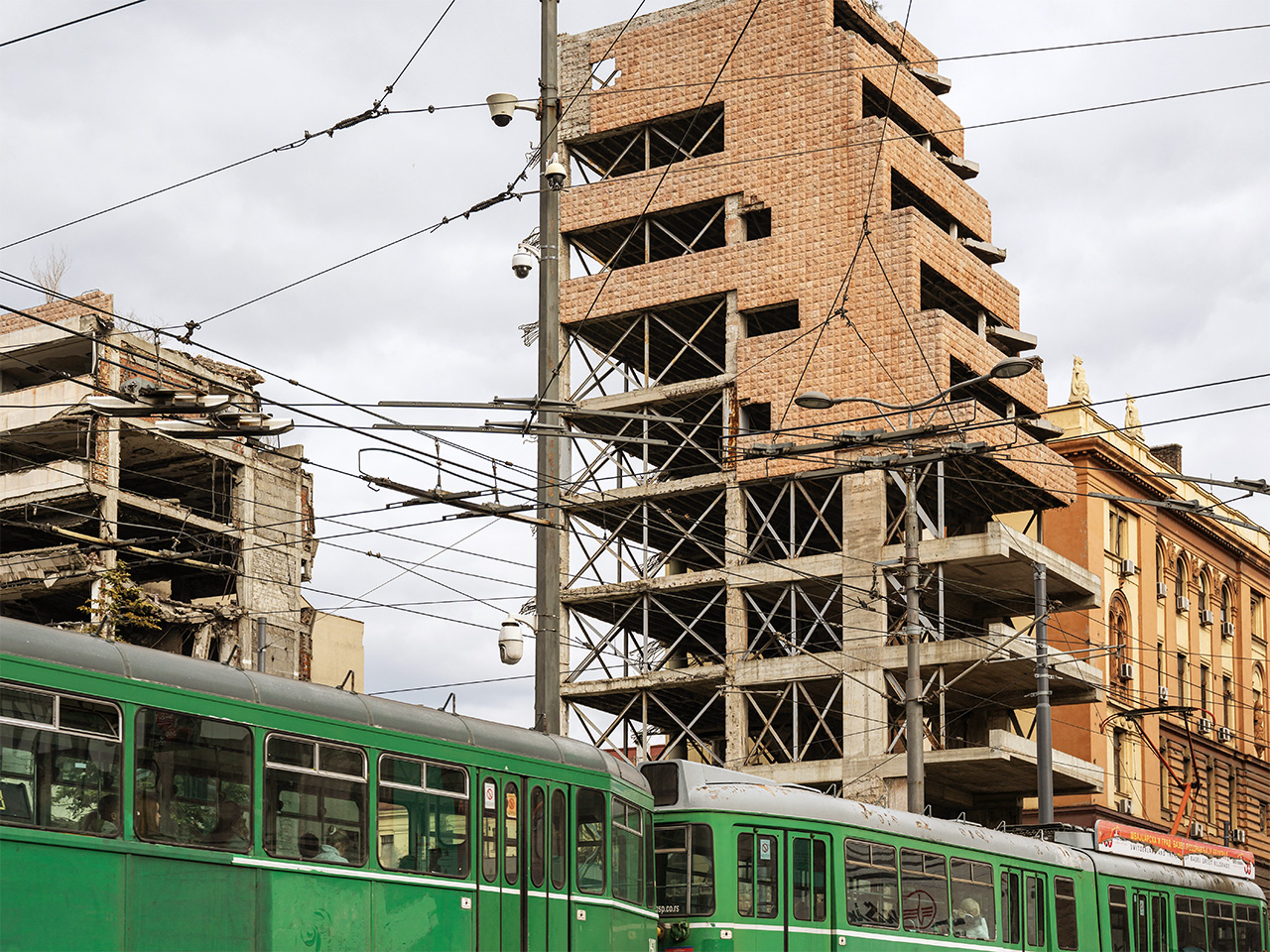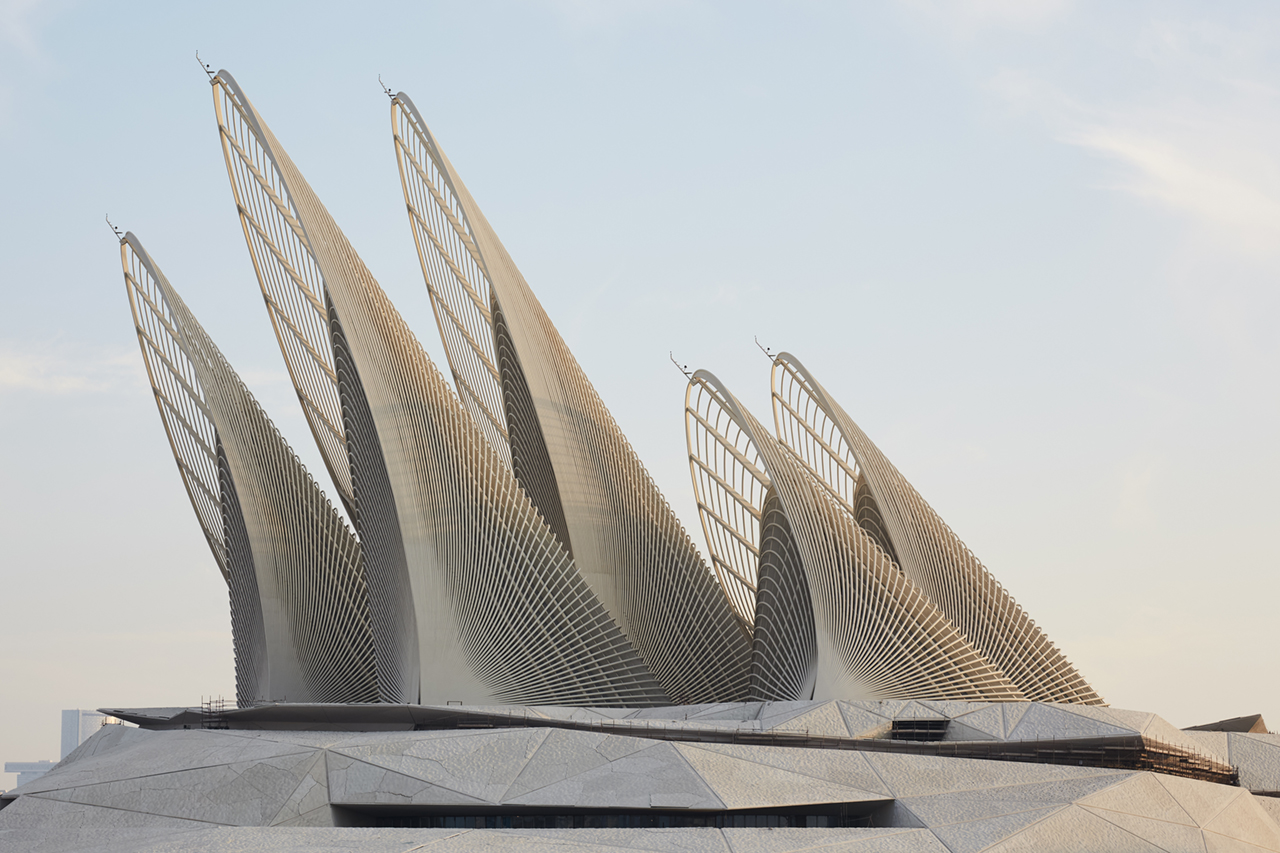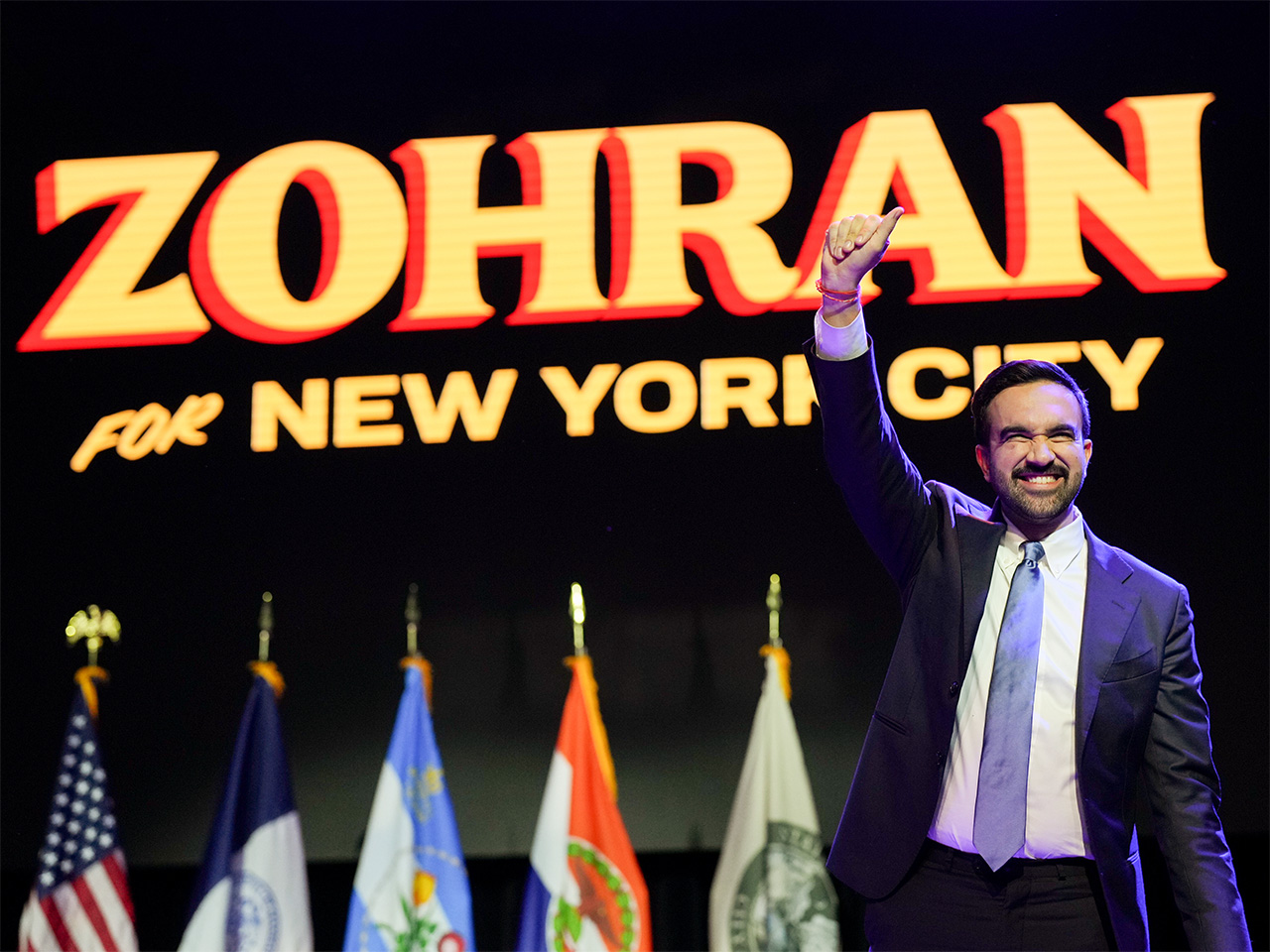Why New York’s business leaders fear Trump’s troops, three cultural openings in Abu Dhabi and the Wake lamp from Tala.
|
Friday 21/11/25
|

|
|
London
Paris
Zürich
Milan
Bangkok
Tokyo
Toronto
|
|
|
|

Good morning from Midori House. For more news and views, tune in to Monocle Radio. Here’s what’s coming up in today’s Monocle Minute:
THE OPINION: Why Trump’s Belgrade hotel doesn’t bode well
THE LIST: Three cultural openings in Abu Dhabi
DAILY TREAT: Wake up next to a Tala lamp
BUSINESS: New York progressives and the business elite agree on one thing
|
|
Trump’s towers don’t tend to last. Is Belgrade taking a backwards step?
By Guy de Launey
|

|
Thousands of Belgraders marched down Kneza Miloša street last week, banging drums and blowing horns in protest against Donald Trump. The crowd stretched across all six lanes of the avenue as it made its way through the centre of Serbia’s capital.
Those in front carried a banner, bearing the unwieldy but unequivocal slogan, “We will not give away the General Staff building”. It was a message to Trump, his son-in-law Jared Kushner and Serbia’s government. The extended Trump family has designs on a prime piece of Belgrade real estate, a ministry of defence complex known as Generalštab, directly opposite the main government building. Kushner’s company, Affinity Partners, plans to build a new development on the site that will include a Trump International hotel.

Blast from the past: The Generalštab complex in Belgrade
Serbian MPs gave the project a significant boost earlier this month when they voted in favour of redeveloping the site that has, for decades, enjoyed protected heritage status. This legislation achieved the unlikely feat of bringing together a disparate coalition of opponents, from student activists and architects to military veterans and right-wing nationalists. War veterans view the site as a memorial. (The complex took several direct hits during the 1999 Nato air-strike campaign against the government of Slobodan Milošević.) Architects point out that the buildings are a rare example of surviving work in Serbia by the renowned Yugoslav-era architect Nikola Dobrović. Meanwhile, students and anti-corruption campaigners highlight the lack of transparency surrounding the decision to sign the site over to Affinity Partners for a 99-year period.
But what are they protecting? It is a site that consists of crumbling concrete, shattered windows and twisted metal. The ruins have offered the people of Belgrade a daily reminder of wartime ever since. However, it also provides a warped welcome to visitors of the city, whose route often takes them directly past the bombed-out buildings.
Here lies the positive aspect of Affinity Partners’ interest: it recognises the need to breathe new life into the capital. Three decades on from the breakup of Yugoslavia, Serbia is still struggling to move forward, with historical arguments dictating the national narrative. Serbia’s leaders, and its people, vacillate between East and West, with exaggerated nostalgia for a warm, supportive relationship with Russia and a long, potholed path to EU membership.
The state of the Generalštab complex epitomises this indecision. Perhaps the site could be respectfully restored as a tribute to Nikola Dobrović. Or, given its utterly dilapidated state, replaced by something that represents the best of contemporary Serbian architecture.
After all, Trump-branded redevelopments have a track-record that could charitably be described as “chequered”. Take the Trump Ocean Club in Panama, later known as the Trump International Hotel and Tower. Ahead of its opening in 2011, it was a controversy magnet, from Trump’s misleading claims about financing and development to his daughter Ivanka’s inaccurate boast that she had personally sold 40 units at the complex. Within two years, the project was bankrupt; the Trump name was later removed and the hotel rebranded as a JW Marriott. Other examples include: Trump International in Toronto, opened in 2012, rebranded as a St Regis in 2018; and Vancouver’s second-tallest building, which lasted just three years as a Trump International before its closure in 2020, when employees learned that they were out of jobs through media reports. It now operates as the Paradox Hotel. The lesson? Serbia’s government should tread carefully.
The Trump International project is the wrong development for a country that needs infrastructure that can inspire for at least 99 years. It is not too late to harness the controversy to produce something better. To do that, however, Serbia must begin to look forward rather than back.
Guy de Launey is Monocle’s Ljubljana correspondent. Further reading? Monocle caught up with Serbia’s foreign minister, Marko Đurić, who has a Maga hat in his office – read the story here. For more opinion, analysis and insight, subscribe to Monocle today.
|
|
Edo Tokyo Kirari  MONOCLE MONOCLE
|
|
the list: uae
Three openings to visit in Abu Dhabi following Nomad’s Middle Eastern debut
Abu Dhabi’s cultural calendar is entering its high season (writes Inzamam Rashid). Leading the charge with its Middle East debut is roving collectable-design fair Nomad. Its takeover this week of the decommissioned Terminal 1 at Zayed International Airport, a 1982 Paul Andreu modernist gem, says much about the city’s shifting instincts. Rather than reaching for a shiny new container, Abu Dhabi has opted to reanimate a piece of its own recent history – not as disposable infrastructure but as cultural capital.

Shifting sands: The Zayed National Museum
Inside the terminal, the fair settles into its new home with surprising ease. Nilufar, Gallery Fumi and Galerie BSL lean into the building’s circular halls and mosaic surfaces. The effect is contemplative, with a rhythm that suits Abu Dhabi’s tempo. Meanwhile, Shifting Terrains, the fair’s off-site showcase at Jumeirah Saadiyat Island, brings the conversation outdoors, giving regional designers room to explore how landscape and craft can shape a distinctly Gulf aesthetic.
Nomad wraps up tomorrow but there are plenty more cultural events on the horizon. Here are three anticipated openings on Abu Dhabi’s Saadiyat Island.
1.
Natural History Museum Abu Dhabi opens tomorrow (Monocle will be there), adding world-class scientific displays spanning palaeontology, biodiversity and planetary history to the island’s offering.
2.
Zayed National Museum, designed by Foster + Partners, is a falcon-shaped landmark dedicated to the UAE’s founding narrative, opening on 3 December.
3.
Sotheby’s Collectors Week Abu Dhabi brings auctions and previews to the capital, matching the region’s growing appetite for collectable wares with serious international clout. The event will run from 2 to 5 December at The St Regis Saadiyat Island Resort.
|
|
• • • • • DAILY TREAT • • • • •
Wake up next to a Tala lamp
Owning the correct bedside lamp can make getting up in the morning a genuine pleasure. London-based lighting company Tala’s Wake model – designed in collaboration with Thomas Heatherwick – features a ceramic, hand-glazed base and a custom-made bulb that mirrors the sun’s full-spectrum luminosity to support salutary circadian rhythms.
The result? A soothing soft glow in the evening and brighter, energising illumination in the morning, reinforcing your natural sleep patterns. Its distinctive globular design makes it an eye-catching addition to any bedside table.
tala.co.uk
|
|
|
Sponsored by Edo Tokyo Kirari
|
|
|
|
|
|
business: usa
Why New York officials are teaming up with Wall Street to keep Trump’s troops out
In the wake of Zohran Mamdani’s victory, New York’s political establishment has turned its attention to mitigating the tension between the mayor-elect and president Trump (writes Henry Rees-Sheridan). Governor Kathy Hochul is preparing business leaders to dissuade the president from sending National Guard troops to New York.

Helping hand: New York’s officials and executives find a mutual enemy
Trump’s threats might have landed Mamdani his first opportunity to ally with the city’s elite. The commissioner of New York State’s division of homeland security and emergency services, Jackie Bray, is leading the effort to resist a federal takeover by recruiting business executives to show how federal deployments in other US cities have negatively impacted the economy.
The strategy has been tried elsewhere. Last month executives in San Francisco successfully discouraged the president from sending troops to the city. But in New York, many business leaders are wary of Mamdani’s plan to raise taxes on corporations and the city’s wealthiest while freezing apartment rents. Nevertheless, when it comes to federal intervention, there’s widespread agreement that Trump’s strong-arming is bad for business.
|
|
| | |